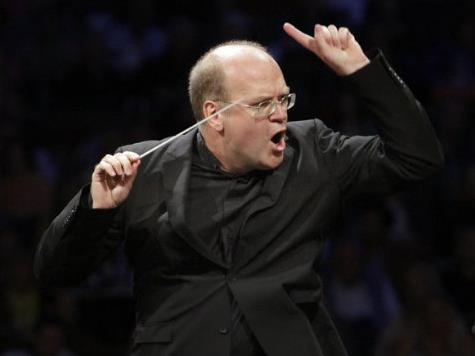Strictly speaking, it should have been ‘To the Empresses’ since both the great Maria Theresa and the consort of Emperor Franz II, Marie Therese, were associated with Haydn’s music. According to tradition, the Te Deum for the Empress was composed for the latter and Symphony No. 48 was favourably received by Maria Theresa and has consequently had her name appended to it. The fact that this symphony was approved by the Empress and was one of the very few Haydn symphonies which survived in various editions through the 19th century makes it difficult to understand why it has had only one airing by the Melbourne Symphony Orchestra: in 1976.
Perhaps even more astonishing is the fact that the Te Deum has also been performed only once before (in 1971) and the Theresienmesse has never been performed by the MSO until now. All three works deserve much more frequent airings and it is to the MSO’s credit that these unjustly neglected works have been showcased at the Melbourne Recital Centre.
With green acoustic blinds lowered, Baroque and Classical repertoire specialist, Bernard Labadie, led a streamlined orchestra and a disciplined MSO Chorus through a lively account of the Te Deum. It is a short work (about ten minutes) but full of interest from the festive opening through to the softer middle passages and the final dialogue between the female and male sections of the choir. The program notes refer to ‘human torment and humility’ but in this performance the emphasis was on the more joyful aspects of man’s relationship to God.
Labadie’s approach to the symphony was similarly buoyant as he delighted in the possibilities of graceful nuance inherent in Haydn’s score. Lightness of touch and careful attention to the shaping of a phrase and dynamic contrast were evident throughout. The series of pauses allowing a full appreciation of the unexpected modulations in the ‘Adagio’ were beautifully realized. The vitality of the ‘Finale’ with its rollicking, almost operatic conversational expression was sheer pleasure. No wonder the Empress was impressed.
From the gentle, resonant warmth of the initial ‘Kyrie’ of the Theresienmesse to the full-bodied declamation of the ‘Gloria’, and much else, the MSO Chorus proved to be a well-balanced and responsive body of singers Although there was some blurring of the florid passages at the end of the Te Deum, all sections of the mass were confidently delivered. Being accustomed to the much larger venue of Hamer Hall the forte passages were occasionally a little overwhelming in the more intimate space of Elisabeth Murdoch Hall, but, overall, the chorus made a fine impression. In particular, the immaculate blending of some sustained pianissimos was quite astonishing.
The four soloists were also admirable. Even though there are moments when the soloists are featured individually, for the most part they sing as an ensemble. There is a most pleasing interweaving of passages for solo voice, solo plus trio, duets and chorus. Miriam Allen’s bright, accurate voice was a secure underpinning for the ensembles and her beautiful lead in the ‘Et incarnates est’ demonstrated her mastery of the long phrase, with exemplary breath control and support. Fiona Campbell’s rich mezzo-soprano shone in her short solo passages but mainly in adding texture and beauty to the softer ensemble singing. Paul McMahon (tenor) and Richard Anderson (bass) also made worthy contributions as soloists and members of the quartet. The music itself is hugely gratifying to both singers and listeners and these singers certainly sounded as though they appreciated every note that Haydn had written for them. The orchestra under Labadie played with sensitivity and stylish brio.
As the ‘father of the string quartet’, Haydn could be viewed as some old fuddy-duddy ready to be superseded by younger, more creative musical intelligences. Closer consideration reveals him to be a composer of enormous ingenuity and unexpected pleasures. Those members of the audience who have had their appetites whetted by this splendid tribute to Haydn will be happy to know that the Melbourne Festival has more Haydn treasures in store. Michael Stevens and the ever innovative Richard Tognetti have curated the beginning of a three-year program as a comprehensive tribute to Haydn and the string quartet. Perhaps the MSO would like to include first-rate performances of the other five of his six masses.
Rating: 4 stars out of 5
Tribute to the EmpressMelbourne Symphony Orchestra
Bernard Labadie – conductor
Miriam Allan – soprano
Fiona Campbell – mezzo-soprano
Paul McMahon – tenor
Richard Anderson – bass
Melbourne Symphony Orchestra Chorus
Haydn – Te Deum
Haydn – Symphony No.48 Maria Theresia
Haydn – Mass in B flat Theresienmesse
Melbourne Recital Centre
19 September





